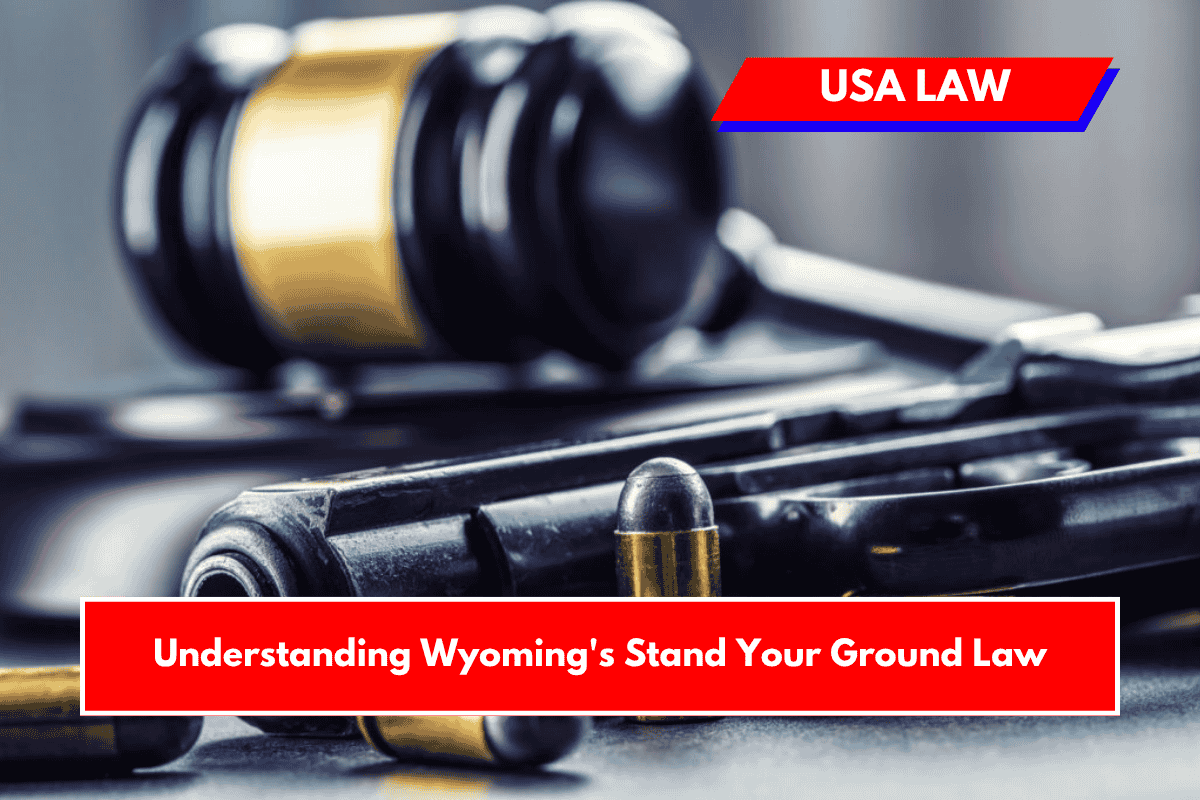Wyoming’s Stand Your Ground law is a key component of the state’s self-defense statutes, offering residents broad legal protections when defending themselves or others from imminent threats. Here’s how the law works and what it means for Wyomingites.
What Is Stand Your Ground?
Stand Your Ground laws allow individuals to use force—including deadly force—in self-defense without first having to retreat from a threatening situation, provided they are lawfully present and not engaged in illegal activity.
This legal principle differs from the “duty to retreat,” which requires individuals to attempt to escape danger if possible before using force.
Wyoming’s Stand Your Ground Law
Wyoming’s Stand Your Ground law is codified under Wyoming Statute § 6-2-602. According to this statute:
- No Duty to Retreat: Individuals in Wyoming are not required to retreat before using force—including deadly force—if they reasonably believe it is necessary to prevent imminent death, serious bodily injury, or the commission of a violent felony.
- Where It Applies: The law applies anywhere a person is lawfully present, including homes, vehicles, and public spaces.
- Reasonable Belief Standard: The use of force is justified only if the person reasonably believes it is necessary to protect themselves or others from imminent harm.
- Not the Aggressor: The law does not protect those who provoke or instigate the confrontation.
Immunity from Prosecution and Civil Liability
Wyoming’s Stand Your Ground law provides immunity from both criminal prosecution and civil liability for individuals who justifiably use force in self-defense. This means that if a court determines the use of force was lawful, the defender cannot be prosecuted or sued for injuries or damages resulting from the incident.
Limitations and Considerations
- Provocation: If a person provokes the confrontation, they may not be able to claim self-defense under Stand Your Ground.
- Evidence and Documentation: Those asserting Stand Your Ground as a defense should promptly contact law enforcement, provide a detailed account of the incident, and gather evidence such as witness statements or surveillance footage to support their claim.
- Potential Risks: If the defense is unsuccessful, individuals may face criminal charges or civil lawsuits.
Summary Table
| Feature | Wyoming’s Stand Your Ground Law |
|---|---|
| Duty to Retreat | No |
| Applies in Public | Yes |
| Applies at Home | Yes (Castle Doctrine included) |
| Reasonable Belief | Required |
| Immunity | Criminal and civil |
| Provocation | Disqualifies defense |
Key Takeaways
- No obligation to retreat: Wyoming residents can defend themselves without first trying to escape danger.
- Broad application: The law applies in homes, vehicles, and public places.
- Reasonable belief required: Force must be justified by a reasonable belief of imminent harm.
- Immunity: Justified use of force provides protection from prosecution and lawsuits.
- Not for aggressors: Those who provoke confrontations cannot claim Stand Your Ground.
Wyoming’s Stand Your Ground law empowers residents to protect themselves and others, but it is important to understand its scope and limitations to ensure lawful and responsible self-defense.
SOURCES:
- https://www.steventituslaw.com/blog/is-wyoming-a-stand-your-ground-state/
- https://www.wyoleg.gov/Legislation/2025/HB0172
- https://giffords.org/lawcenter/state-laws/stand-your-ground-in-wyoming/
- https://bestshotatfreedom.com/a-guide-to-stand-your-ground-in-wyoming/











